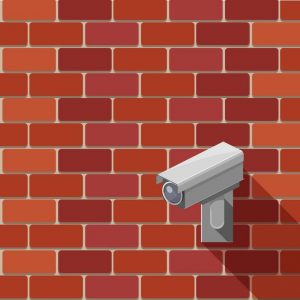 Although community associations should not provide security, many are looking for new ways to address criminal activity. One trend gaining popularity is the use of license plate readers. License plate readers are cameras that capture still images of a vehicle’s license plate as the vehicle drives by. This technology has been available for law enforcement and other businesses for quite some time, but the reduction in costs coupled with better cameras has opened the door for smaller-scale applications. For associations that have, or are considering installing license plate readers in their communities, it is worth revisiting the underlying concerns they raise on security and privacy rights.
Although community associations should not provide security, many are looking for new ways to address criminal activity. One trend gaining popularity is the use of license plate readers. License plate readers are cameras that capture still images of a vehicle’s license plate as the vehicle drives by. This technology has been available for law enforcement and other businesses for quite some time, but the reduction in costs coupled with better cameras has opened the door for smaller-scale applications. For associations that have, or are considering installing license plate readers in their communities, it is worth revisiting the underlying concerns they raise on security and privacy rights.
Security
Many declarations contain a provision that states, in one way or another, that the association is not responsible, nor shall it be liable for, ensuring the safety and security of owners, their guests, invitees, or their personal property. This type of exculpatory clause has been upheld since the 2002 Georgia Court of Appeals decision in Bradford Square Condominium Association, Inc. v. Miller, 573 S.E.2d 405 (Ga. Ct. App. 2002). It is important to note, however, that having such an exculpatory clause does not automatically relieve an association from all liability for third-party criminal acts. For example, if an association takes affirmative steps to provide security-to the extent that members reasonably believe it is being provided-there could be liability on the part of the association if a crime occurs and damages result. This does not mean an association should never take steps to deter criminal activity, but if it does, the key in doing so is to remind all residents that the steps taken should not be considered a guarantee that criminal activity will never occur. Rather, it should be clearly communicated that residents remain responsible for their own personal safety in accordance with the terms of the exculpatory clause in the association’s governing documents.
So, if an association decides to install license plate readers in response to an uptick in criminal activity, it is important that the association provides a disclaimer to the residents about future crimes. In other words, the association should communicate that the license plate reader is primarily for catching a criminal and assisting the police after a crime occurs-it is not being installed to prevent crimes and/or provide security for the residents. The cameras, over time, may invariably have this positive impact on the community, but this clarification up front may be the difference between liability or not for an association if crimes occur after the license plate readers are installed.
Privacy
Privacy rights are another major concern for communities that are considering installing license plate readers. This is because images are often taken of every vehicle that passes by the license plate reader. But similar to the data captured by modern, more traditional surveillance equipment, the images taken by most license plate readers are usually automatically deleted after a set period of time. For example, the license plate reader may only store pictures “in the Cloud” for thirty days unless a specific file is saved by the user (e.g., to send to law enforcement after a crime takes place). On the other hand, some companies that offer license plate readers may send all images to law enforcement, but they include a “safe list” so the police know who is a resident and who is not (presuming there was a crime and a subsequent investigation). Either way, however, most motorists do not have a reasonable expectation of privacy while driving around in their vehicles. Furthermore, the data collected by license plate readers is far less than what is likely being tracked by most smartphones.
Conclusion
The takeaway for community associations is that, like all security measures that may be implemented, the license plate readers are not a guarantee that crimes will never occur again. In addition, they do take pictures of all vehicles that drive by, but there is likely no reasonable expectation of privacy over license plate data, or the fact that someone entered into the community. Property managers and boards will need to weigh these pros and cons to determine if license plate readers would be a good fit for their communities. And of course, if there are additional questions or concerns about these issues, they should be directed to the association’s attorney.
